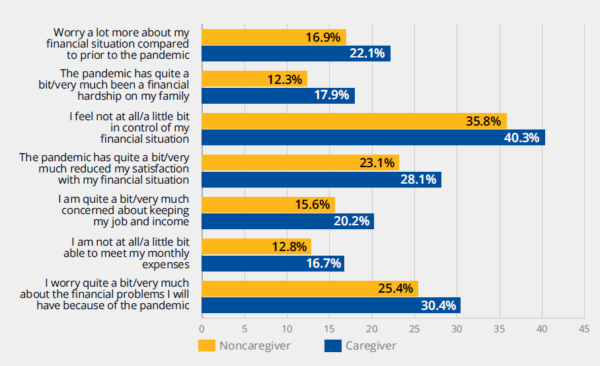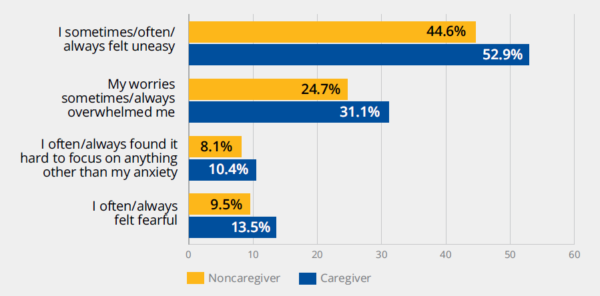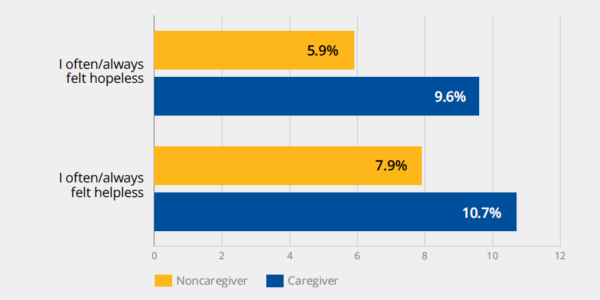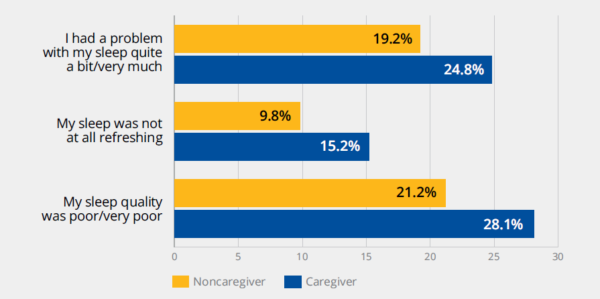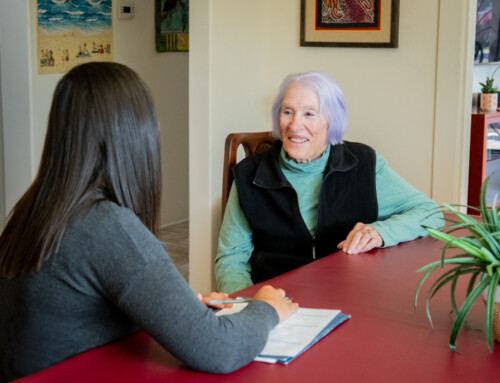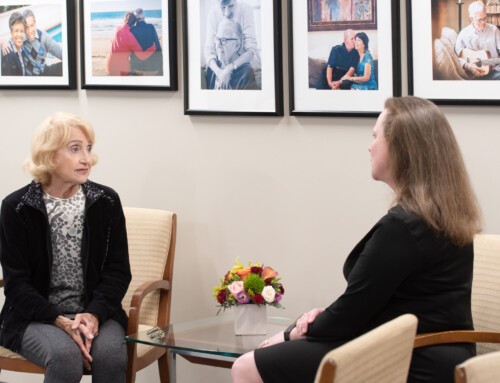 Family caregivers are under a heightened amount of stress at any given time – but the COVID-19 pandemic certainly doesn’t help.
Family caregivers are under a heightened amount of stress at any given time – but the COVID-19 pandemic certainly doesn’t help.
A recent study conducted by the National Rehabilitation Research & Training Center on Family Support at the University of Pittsburgh surveyed 3,552 people to determine the effects of the pandemic. Unsurprisingly, those who identified as family caregivers consistently reported more strain than non-caregivers.
RELATED | Learn about our virtual services and support
For instance, family care partners reported higher rates of financial worries, anxiety, depression, and trouble sleeping than non-caregivers:
Some other major takeaways from family caregivers:
- 23% of family caregivers said the COVID-19 pandemic has required changes in caregiving arrangements, or in who is providing care
- 63% reported that the pandemic has increased caregiving efforts or duties
- 22% of family caregivers reported that COVID-19 has made providing care more physically difficult
- 56% of family caregivers reported that COVID-19 has made providing care more emotionally difficult
- 20% of family caregivers reported that COVID-19 has made providing care more financially difficult
- 37% report that the pandemic has interfered with doctors’ appointments or treatments for the care recipient
- 21% of family caregivers reported that the pandemic was interfering with their OWN health care
- 43% reported that the pandemic led to increased worry, fear, depression, sleep problems or other declines in care recipient’s mental health
RELATED | New program provides free counseling to caregivers
Many caregivers reported that more responsibilities were falling on them:
- “They can’t go out and it’s not safe for others to come in. I take care of all their needs from food to medication.”
- “I have to thoroughly sanitize everything coming into our home as well as myself, since my husband has a severely compromised immune system, is at high risk for every virus, and gets and stays sicker than everyone else. Even small cuts take 60 or more days to close with proper daily wound care.”
- “I’m providing a higher degree of emotional support (i.e., frequent phone calls, visiting almost daily, ordering food for her), providing more assistance with household chores (she has cancelled the woman that cleans for her), and I’ve increased shopping online and grocery shopping for her.”
Another common theme was the toll the pandemic has taken on mental health, both for caregivers and the family member they’re caring for:
- “Because of his emotional and behavioral challenges, the isolation is affecting both of us more, psychologically. There are times where both of us feel like we’re bouncing off walls here.”
- “It’s long days with no outlet for stress relief via getting outside or talking to other people. Very lonely.”
- “My anxiety is through the roof. I take legal cannabis for anxiety (vaped) and have discontinued it because I don’t want anything in my lungs. Dispensaries are not offering curbside pickup and I won’t go inside.”
- “The little socialization he got before the pandemic is now gone, so he’s a bit more depressed.”
- “She has become sad and somewhat fearful, wondering ‘why no one likes her anymore’.”
- “She is too afraid to leave her house. All the things she was doing to improve her mental health—working, walking, planning meals, and shopping for her family—have all stopped.”
RELATED | Hidden Heroes: Caregivers, mental health & COVID-19
Family caregivers also reported having trouble accessing healthcare:
- “Yes, my mother was scheduled for a back-injection procedure in late March to help with pain and mobility and it was cancelled, which has contributed to her physical decline.”
- “With the availability of teleconferencing, we have cancelled in-person appointments and elected to go with these, but they are not as in-depth as in- person.”
- “All mental health has been moved to telehealth, and group therapy was suspended. Something that helped his mental health was being around other veterans. Now it is non-existent.”
Click here to read the full report >>
At Alzheimer’s San Diego, we know that the isolation of the pandemic can be especially difficult for those living with dementia and their care partners. But please know you don’t have to face this alone!
Our expert team is here to help. Give us a call for free support: 858.492.4400.
